 In the next four weeks, I am going to be sharing articles I wrote over ten years ago. Why? Because they were fun, contained great information and when I reread them, I fell in love with my family all over again. I will have a current introduction to each article, but I‘m not going to adjust the information to make it appear that it is in the now. You will see people and situations as they were over a decade ago.
In the next four weeks, I am going to be sharing articles I wrote over ten years ago. Why? Because they were fun, contained great information and when I reread them, I fell in love with my family all over again. I will have a current introduction to each article, but I‘m not going to adjust the information to make it appear that it is in the now. You will see people and situations as they were over a decade ago.
You know, I have been in the parenting trench for a long time. I raised my own seven and then I moved into a three-generation home. I didn’t have that 24/7 responsibility but I was still surrounded by children and the challenges, joys, and learning that come with that territory.
Now, I am in a four-generation home. It just goes on and on. LOL I think I was made for this and although sometimes I would like to be in a home with just me, Don, and quiet, well, I would miss out on much, and I would learn far less. So, enjoy these lessons from the past and the cute kids who taught them to me.
Children Learn Best When They Are Interested
Benny is two, and he loves knowing how things work! Yesterday, as I came upstairs, I saw him working with a screwdriver on the wall heat vent. He was trying to put the blade of the screwdriver into the slot on the screw head.
Of course, his motor skills aren’t developed enough for him to manage it. Then there is the issue of being strong enough to turn the screwdriver. Benny didn’t seem perturbed or discouraged about what he couldn’t do. He was totally immersed in learning at his level.
I said, “Benny, what are you doing?” He replied, “Take off.” When his motor skills catch up with his desire to work with tools, we had all better look out!!!
I am thinking about Benny today because of what happened this morning. I have been tied to my computer for a few days working on a project with a deadline.
This morning Benny climbed onto my lap and watched for a short time. Then he said, “What this” while pointing to the cord that connects my computer to the source of electricity. I responded that this cord brought electricity to the computer and that a computer had to have electricity to work. He repeated, “Electricity”.
He then pointed to the printer cord and said, “What that?” “It is a cord to the printer, Benny. It lets the computer tell the printer to go to work”. I pointed out the cursor on the screen and then hit the printer icon. Then we watched the page print.
Next, he pointed to the cord that connects the mouse to the computer. “What that?” “That is the mouse, Benny. See, when I move the mouse this little cursor moves on the screen and lets me pick what I want.” He repeated, “Cursor.” He was fascinated.
Then he pointed to the thumb drive I was using for my project. “What that?” I told him it was a thumb drive that contained pictures of family. He said, “Thumb drive”.
I moved the mouse, pointed out the cursor on the screen, and he watched while I opened the device and then the file. We took a moment or two and scrolled through the pictures while he named off the people. When we were finished looking at the pictures, he pointed to the thumb drive and wanted to start over again! Children learn best when they are interested!
Why Taking the Time to Hear Matters!
This is a perfect example of what happens when we make time to listen to children and respond to what they are currently interested in. I was listening, I heard his interest, and I responded. Then we had what I call a mini-conversation. It was tempting to say, “Benny, I can’t play right now, I am working.” But who knows when he will come again to ask about the computer.
And since when does a 2-year-old sit still and learn about something way over his head for almost 5 minutes? Anytime they are really interested.
That is the key to real learning. When a child is interested in something, they want to know more. So, it is important to resist the temptation to put off what we could do now, until later, when it feels more convenient.
The Rewards of Making Space to ‘HEAR’
We can’t always respond right now, but we should respond whenever we can; the younger the child, the more fleeting the interest and the teaching moments.
Benny won’t remember the terms he heard today. He still has no idea how any of it really works. But here is what he will remember:
- Grandma loves him and is interested in what he is interested in.
- Learning is fun.
- He is never too young to ask questions about what interests him.
- Asking questions is a good thing. Not knowing yet, is OK.
When Listening to Kids:
- We can scale down any topic to fit the child’s age as I did with Benny.
- We need to listen to and hear their interest
- Watch for Sparks, your child is telling you what they want to know NOW
- If you can’t respond now, do so as soon as you can. With children, time matters.
I enjoyed helping Benny learn more about the computer today, and it went a long way in helping us connect and share love. Remember,



 When I woke up that bright and sunny morning, I never suspected that I’d burn down my bedroom. But some days just don’t go as planned.
When I woke up that bright and sunny morning, I never suspected that I’d burn down my bedroom. But some days just don’t go as planned.
 My granddaughter joined a group called
My granddaughter joined a group called 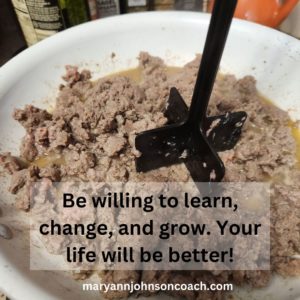 hamburger bits as small as I wanted them for a particular dish. I grabbed the meat chopper, because it was close, and cut up the partially cooked chunks. Hmmm, that was easy even though the meat was hot and partially cooked. I could have gotten the job done with a spoon, but it would have taken more time.
hamburger bits as small as I wanted them for a particular dish. I grabbed the meat chopper, because it was close, and cut up the partially cooked chunks. Hmmm, that was easy even though the meat was hot and partially cooked. I could have gotten the job done with a spoon, but it would have taken more time.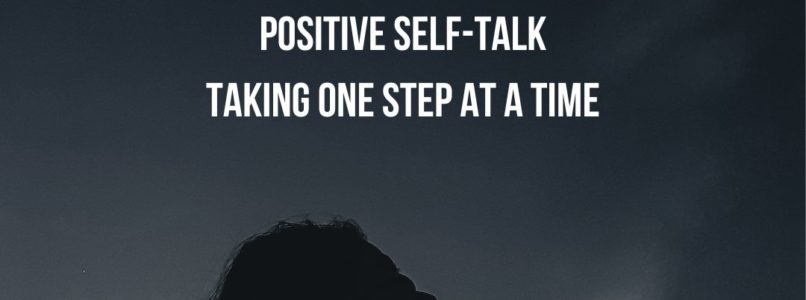


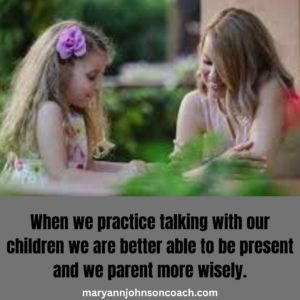 6 Tips for Talking With Kids
6 Tips for Talking With Kids
 In September, I took a rest. I had traveled to Colorado in late August to help a daughter having surgery and was repeating that trip for the same reason early in September. I knew I was going to
In September, I took a rest. I had traveled to Colorado in late August to help a daughter having surgery and was repeating that trip for the same reason early in September. I knew I was going to 
 This article was written in 2011 but it covers a topic that many must grapple with, how to be a great stepparent.
This article was written in 2011 but it covers a topic that many must grapple with, how to be a great stepparent.

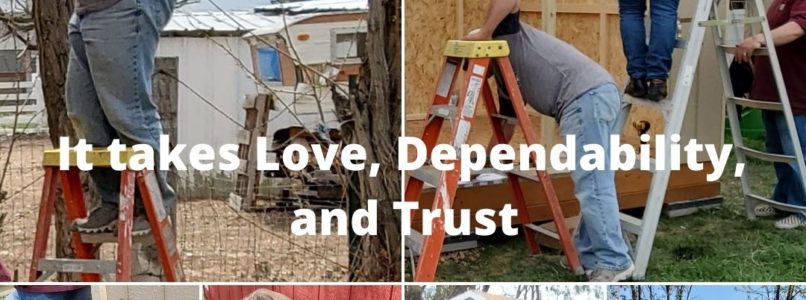
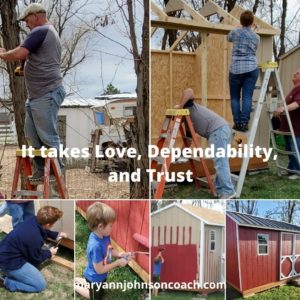

 Can Everyone Be Happy, Ever?!
Can Everyone Be Happy, Ever?!